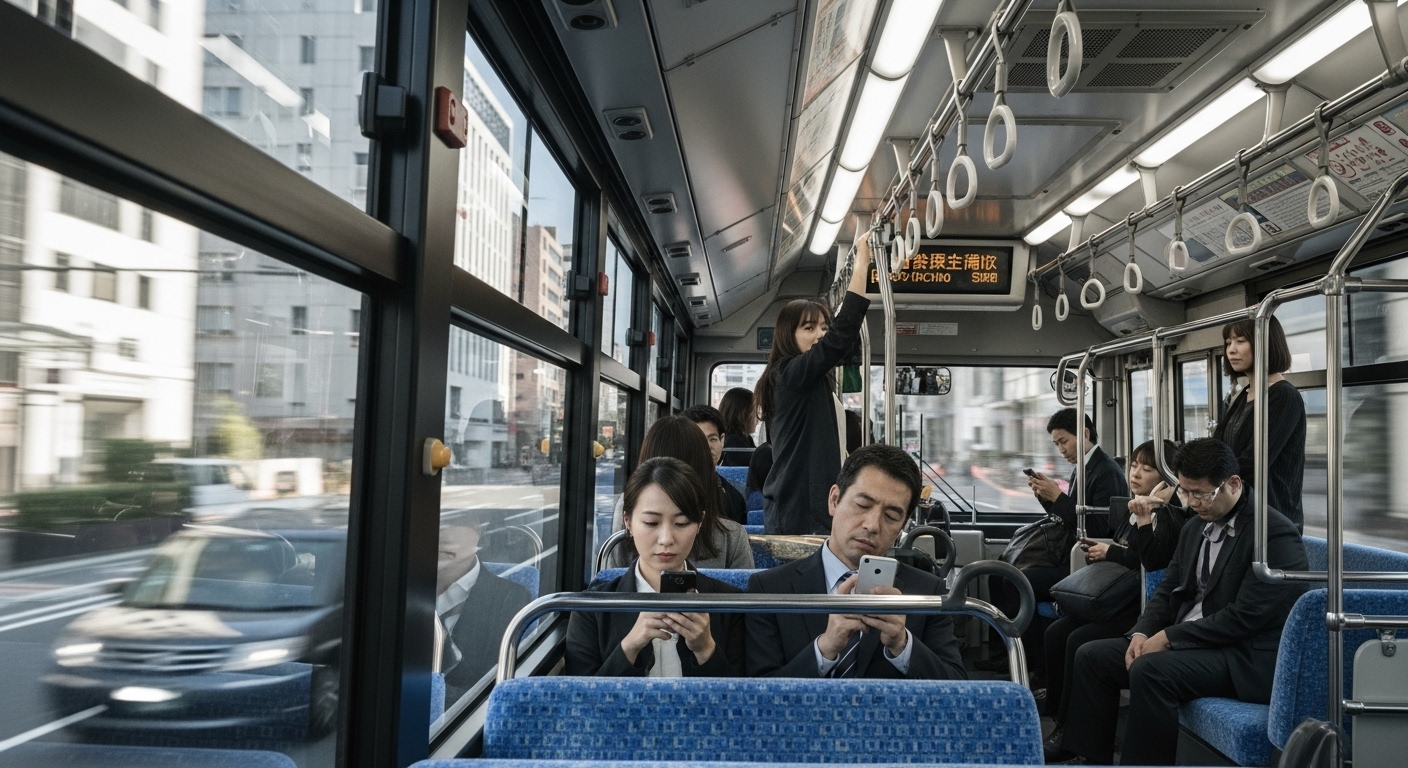
Many first-time visitors are surprised by how quiet trains and buses are in Japan. People often avoid talking or making phone calls, and this habit is rooted in history, religion, and education.
In this guide, we explain why Japanese public transport is so quiet, how it differs from other countries, common mistakes travelers make, and essential travel tips to avoid trouble. These insights will help you enjoy a smooth and stress-free journey.
Why Public Transport Is Quiet in Japan|Cultural Values Behind Silence
Silence on Japanese public transport is not just a rule—it comes from cultural values that emphasize avoiding inconvenience to others. In major cities, many passengers read, work, or simply rest while commuting, so a quiet environment is appreciated. From a young age, children are taught that staying quiet in public is polite, which helps this mindset become a natural part of daily life.
Why People Stay Quiet on Trains|History, Religion & Social Education
The habit of staying quiet on trains and buses is deeply influenced by Japan’s history and religion. In Buddhism and Shinto, silence symbolizes respect and inner calm. Later, the school system reinforced the idea that people should behave calmly in public, especially during commutes. Understanding this background helps travelers see that silence is more than a rule—it is part of Japanese cultural etiquette.
You might be interested in this
How Japanese Commuters Think|Avoiding Disturbance to Others
The main reason Japanese people stay quiet on public transport is their mindset: “Do not disturb others.” This idea is taught at home and in school and is considered basic courtesy. Even during rush hour, passengers try to respect each other’s space so everyone can focus or rest. Understanding this psychology helps international travelers enjoy a more comfortable commute in Japan.
What If You Talk Loudly?|Cautions & Real Travel Mistakes
Speaking loudly on a train or bus can be seen as inconsiderate. During busy commuting hours, loud voices may cause stress for other passengers who are working or relaxing. Travelers who talk loudly may receive uncomfortable looks or even be asked to quiet down. To avoid trouble, keep your voice low, use earphones carefully, and make phone calls only after exiting the train.
Common Mistakes Travelers Make|Train & Bus Manners to Know
Many visitors unintentionally break public transport etiquette. Common examples include loud talking, phone calls, playing music without headphones, or blocking seats with large luggage. These behaviors can trouble others and create a negative impression. Japanese people see trains and buses as shared spaces, so showing awareness and respect is highly appreciated.

 日本語
日本語 中国語
中国語 Español
Español